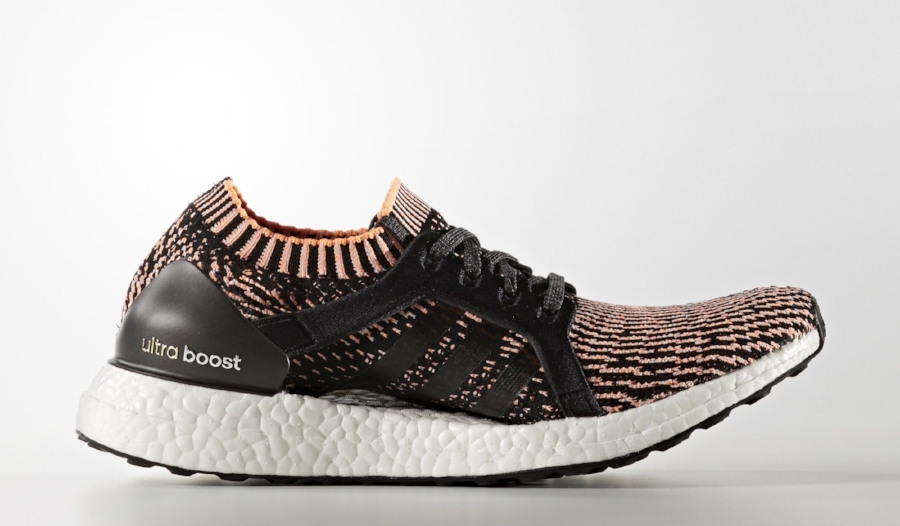
A fascinating case is underway in Germany between adidas and Puma, and for once, it has nothing to do with 3-stripes. The two brands, both headquartered in Herzogenaurach, Germany, landed in court in the fall of 2013, when Puma filed suit, alleging that adidas infringed its patent-protected shoe soles with its popular Boost collection.
The backstory is this: In 2009, Puma began developing foam polyurethane shoe soles with BASF, a German chemicals company, ultimately receiving patent protection for four of its designs. Two years later, BASF and Puma severed their working relationship (Puma claims that BASF terminated the partnership) and BASF jumped to working with adidas.
Thereafter, BASF and adidas inked an exclusive deal for the polyurethane foam technology, which BASF has coined “Infinergy,” enabling Adidas a monopoly of sorts over the compound in 2011. As such, adidas launched its new line of “Boost” footwear in 2013, selling 10 million pairs in the running category, alone, in 2015.
Given BASF’s exclusive license with adidas, Puma was forced to find a new partner to manufacture the polyurethane foam compound, and teamed up with U.S. company Huntsman Corp in 2014. That same year, Puma launched its “NRGY” line of sneakers, which like adidas’ Boosts consist of a springy, cushioned sole that is ideal for running shoes.
Puma v. Adidas
This is roughly when Puma filed suit against adidas, alleging that its rival stole one of its patent-protected sole designs. Adidas rejected the claim, stating that while the two parties’ foam soles do look alike, it is merely because of their use of the same chemical compound. The trial court in Frankfurt sided with adidas in June 2015, holding that the design of the “Boost” soles was, in fact, dictated by technology, leaving Adidas with no other options. As a result, the court dismissed Puma’s case.
Puma has appealed that decision, with its head of intellectual property, Neil Narriman, saying, “We have to assume that adidas relied on our tools, research and know-how.” He further held that Puma is optimistic about the success of the appeal, noting, “By making statements that were contrary to one another during the respective proceedings in Frankfurt and Dusseldorf, adidas has caught itself in many contradictions.”
Adidas v. Puma
Shortly thereafter, adidas filed a suit of its own against Puma, claiming that Puma’s “NRGY” sneakers infringed its Boost soles and seeking an injunction to stop the sale of the Puma sneakers. The lower court sided with Puma and as of April 2016, the Duesseldorf regional court also rejected adidas’ claim.
A spokesman for adidas told WWD on the heels of the court’s decision, “We will review our options and potential next steps. We will continue to vigorously protect our rights and will continue to take action in case of infringements.” The company “will continue to vigorously protect our rights and will continue to take action in case of infringements,” she further noted.
The two sportswear companies have a fierce rivalry that dates back to their foundation in the late 1940s after a falling out between brothers Adi and Rudi Dassler in the southern German town of Herzogenaurach, who respectively launched adidas and Puma.
The Industry at Large
The actual extent and duration of adidas and BASF’s exclusive deal is unclear. Since BASF does “not disclose details of our business relationships,” according to a spokesman for the company, for all we know the license could be nearing its expiration, which would, of course, have implications for the exclusivity of adidas’ Boost line and the industry at large.
It is certainly worth noting that adidas is not the only major sportswear company making use of BASF’s proprietary chemical compounds. Adidas’ subsidiary Reebok, as well as arch-rival Nike, are using BASF’s “innovative thermoplastic polyurethane elastomer, Elastollan to help make their shoes more durable, ergonomic, and comfortable.”
UPDATED (8/23/2017): Adidas and Puma are still battling it out in court in Germany. The latest development: Puma has moved to withdraw its appeal in the parties’ legal war over the chemical compound that makes up adidas’ popular Boost technology (as embodied in adidas’ Futurecraft M.F.G sneakers) and Puma’s “NRGY” sneakers.
As of this week, Puma is walking back on its October 2016 request for a preliminary injunction, which would bar adidas from making and selling footwear that allegedly infringed the patent-protected soles of two models of Puma’s own footwear. The court granted and then subsequently rescinded Puma’s request. After the court moved to lift the injunction against adidas, Puma appealed.







